Financial Wellbeing
The 2021 ABS, and 2020 AMP Wellness Report revealed some shocking statistics about Australian financial lives:
- 50% of Australians experience some kind of financial stress.
- 8 million Australian workers experienced severe to moderate financial stress.
- COVID-19 has tripled the stress of those directly impacted.
- Employees becoming distracted, or absent as result of financial stress, has cost the Australian economy $30.9 billion.
- Those severely to moderately stressed about their finances lose 7.7 hours a week and are absent 1.2 hours a week through sick days.
- 26% of Australians do not know if their households are able to save money.
Financial stress is not only experienced in low-income households. Respondents on salaries of up to $150,000 a year with investments of up to $750,000 were only marginally less financially stressed than those who earned up to $90,000 with investments up to $350,000. It was also found that women are much more likely to be financially stressed than men.
Worryingly, these statistics have been made even worse by the COVID-19 pandemic. The hospitality industry has the highest level of financially stressed employees at 26%, with retail secondly most affected at 24%. Geographically South Australia has the highest rate of severe to moderately financially stressed workers at 26%.
COVID-19 has had its impact on financial stress, but it’s a systematic issue that needs attention.
In short – there is a BIG problem!
So what can employers do to support employees?
A number of initiatives, and/or responses to COVID-19, have already helped reduce employees’ daily costs including working from home (which has reduced travel costs) and relaxed dress codes (which has saved money on business attire). However, employers could do more by providing help with financial education.
Many employees need help with their money management in order to succeed. At FTA, we have developed a workshop which is designed to provide that guidance, and can be delivered face-to-face or virtually.
Please note: We do not give financial advice – we are not financial planners and are totally independent – but assist with helping employees to set financial goals for their personal lives, assess their current financial situation and develop a plan for working towards those financial goals.
In designing the workshops, we have also been mindful of the sensitivity of this issue for many and therefore ensure that individuals’ privacy is respected.
The interactive session includes a guide to developing a home budget, instructions on tracking income and expenditure (we recommend that participants do this for 2 weeks prior to the session), questionnaires regarding family finances and practical tips around increasing incomes and managing household costs – including energy, insurance and mortgage interest as well as information on apps and various websites offering advice on a range of topics.
There is a wealth of information available online, so why are so few Australians accessing it? One reason could be that they do not know where to start. Our hands-on, practical approach can help your staff take the first steps to getting their finances under control and on track to reach their own personal financial goals.
Virtual delivery
Sessions can be designed to meet your needs. We recommend a 90 minute virtual session, which includes quizzes and group discussions, but a longer session – half a day or even a full day – would allow participants to analyse their situations further and develop strategies.
We would also be happy to contribute as part of a more extensive program with other independent advisers covering a number of other money management topics in more depth.
Please get in touch by heading to our Contact page, we would be happy to discuss the ideal solution for you and your team.
Sample Agenda
| Finance Quiz |
| Your Financial Goals |
| Understanding Your Current Financial Situation |
| Planning |
| Tips and Tricks |
| Increasing Your Income |
| Cutting Your Costs |
| Mortgages and Credit Cards |

Financial Acumen Self-Assessment
So how do you rate your financial smarts? Let's put them to the test with this 3 minute quiz!
